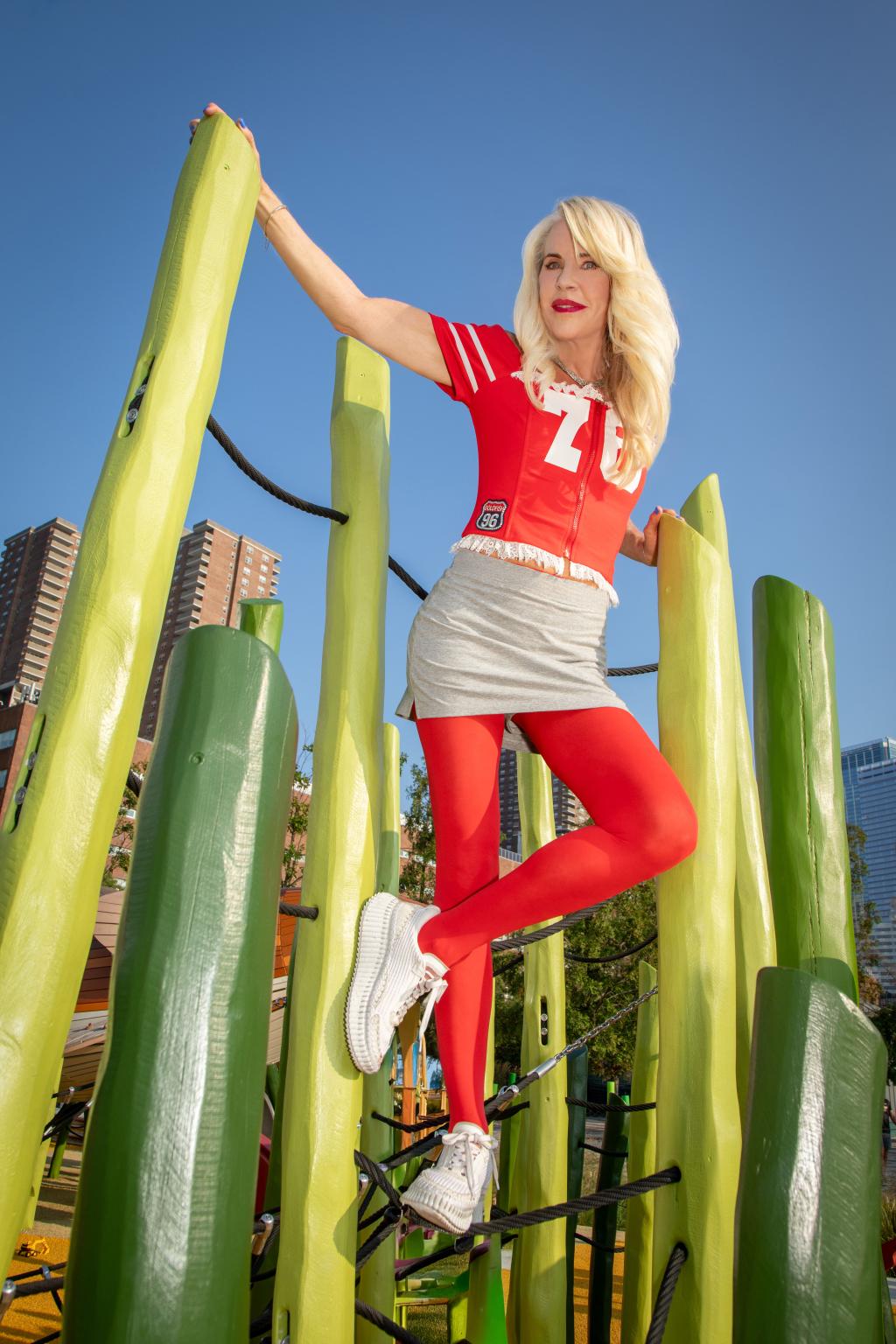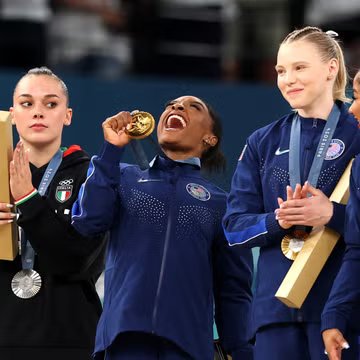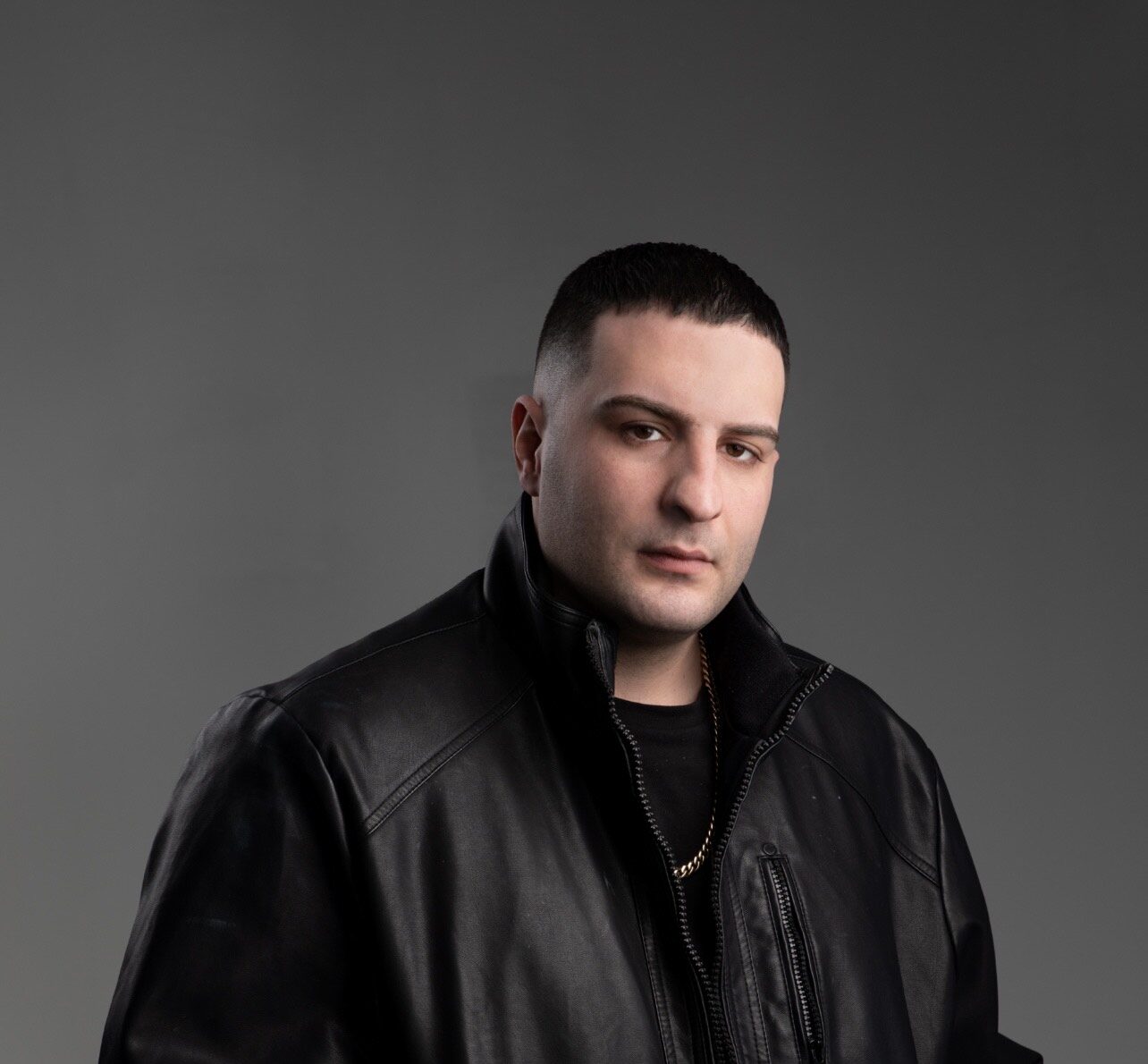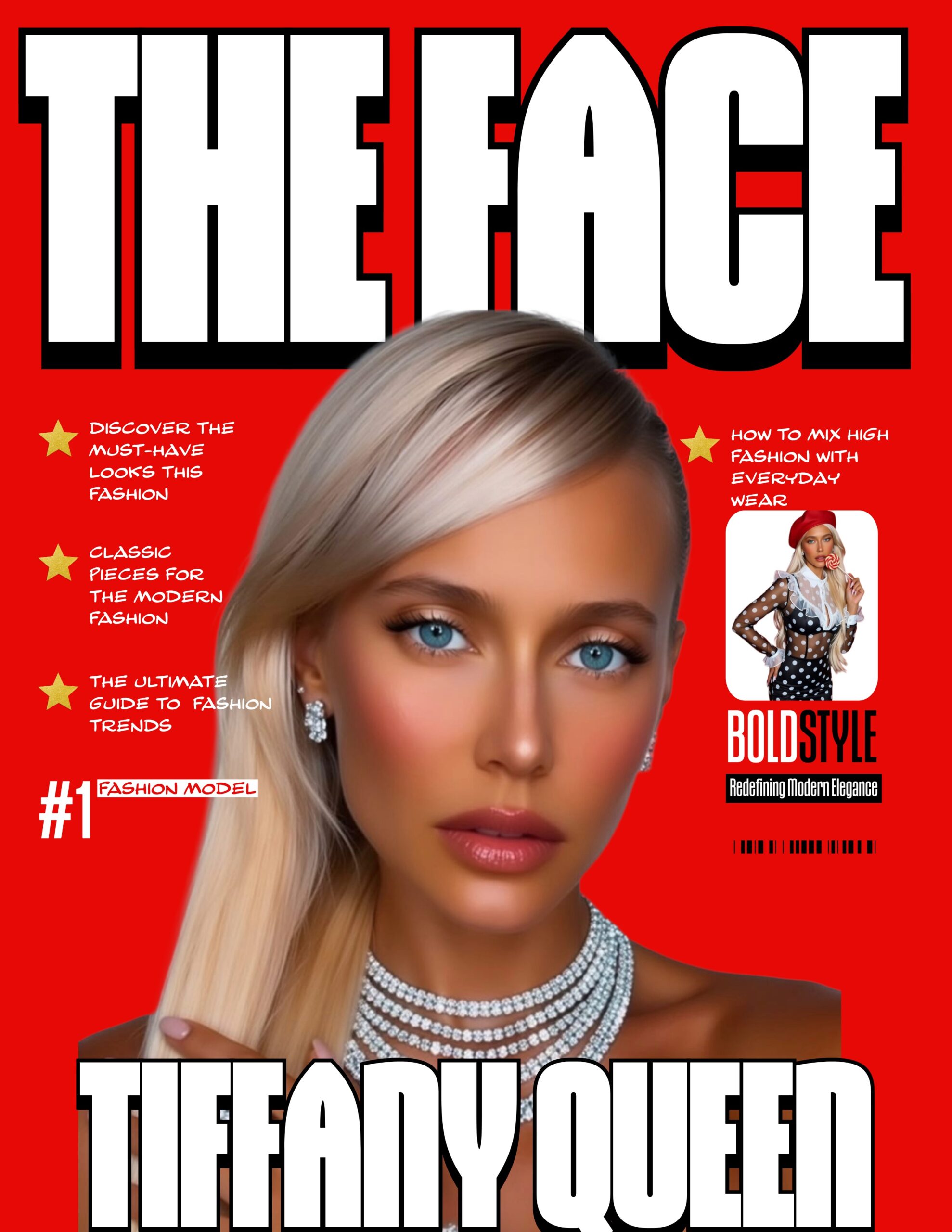This is the first Olympics in almost two decades that track legend Allyson Felix won’t compete in. After dominating five Games—helping cement her legacy as one of the most decorated athletes in American history—she has decided to pass the baton to the next generation of great women runners. “It’s time,” Felix says. At the trials for the Paris Olympics, Gabby Thomas proved she is the one to usher in this new era. Her performance also showed that she is definitively the one to beat. The sprinter came first in the 200-meter dash, handily positioning herself to come home from Paris with a medal. “All the work has been done,” Thomas says. “[Now] I’m going to go do what I know how to do: have fun.”
As she races for gold, Felix will be on the ground in Paris as an official member of the International Olympic Committee’s Athlete Commission. She is also helping launch the first-ever Pampers Nursery in the Athletes Village. Her unofficial role (and one she takes very seriously) is to support Thomas and all the other Team USA track stars from the sidelines. “It’s really this beautiful cycle, the way that women can support women,” she says.
Below, Felix and Thomas, who are both partnering with Delta, the official airline of Team USA, for the Games, talk about life lessons (both on and off the track), mental health, and legacy.
On the 2024 Olympics
Allyson Felix: Gabby, first of all, congratulations! I’m so excited for you. It’s your time and I’m excited to cheer you on in Paris.
Gabby Thomas: I feel really confident and I’m so proud to show to everyone what I’ve been working on and to represent my country.
Felix: You have everything you need, but if I was to give you any encouragement, I would just say to trust yourself, trust your training. You are ready for this moment. And you know that already. We do so much work to get here, and the work is done. Now it’s time to put it all on display.
On remembering to enjoy the moment
Thomas: I was overwhelmed at my first Olympics in Tokyo in 2021. I wanted to experience everything. But I also learned to trust myself. I learned that life really goes on after the Olympics. No matter what happens, it’s all going to be okay afterwards. It’s so hard to think about that in the moment, but when it’s all over and the world moves on, it’s all okay. So I’m trying to go into this Olympics with that perspective. It’s all going to be okay and I’m going to go do what I know how to do: have fun.
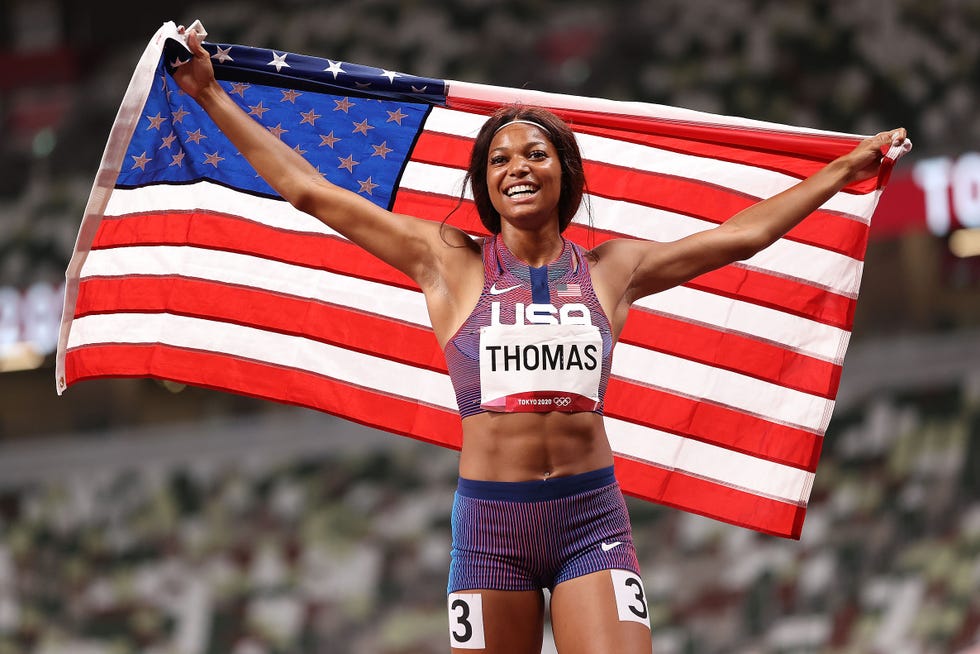
Felix: I’m so glad that you said that. It was one of the biggest lessons I ever learned, but I felt like I learned it way too late. I always had that feeling like, It will not be okay and the world will end. I had so many moments where I didn’t do what I wanted to do on that world stage, and then going to a dark place or feeling like I was falling apart. That is such a beautiful lesson to know that good, bad, indifferent, whatever, life goes on—and whatever happened does not define you. This is not the entirety of your life. I’m so happy that you already know that.
On the importance of passing the torch
Felix: We have a long legacy in the United States and a heritage of doing really well in this event. I’m excited to see you carry that on and put that on display in Paris.
Thomas: I’m sure you’ve read that my first introduction to track and field was watching your Olympic trials. I internalized your silent confidence and poise and the strength that you had when you ran. It’s something I think about all the time when I’m running now. Because of the way you carried yourself, I am also very aware of how I carry myself. I know that there are little girls out there watching me, just like I watched you. Allyson, you are such a role model. Putting that same type of energy and image out there is really important to me. Working hard, winning races, and doing it all with poise and confidence. I try to exemplify that when I race.
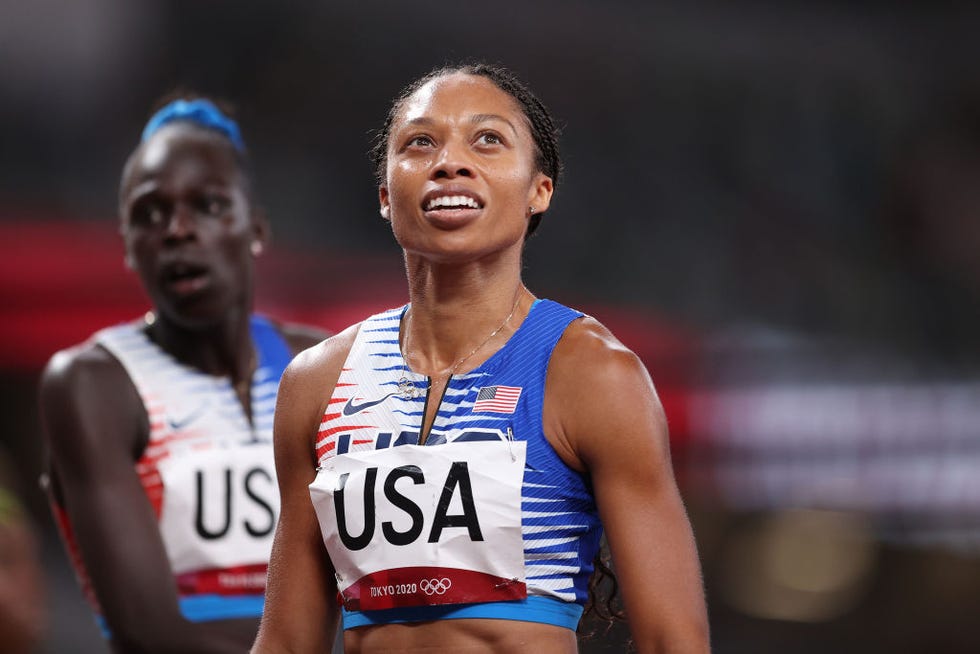
Felix: That means a lot to me. It’s incredible, because now you’re doing the same things for some other little girl. It’s really this beautiful cycle, the way that women can support women. I think of all the women who have paved the way for me. Sometimes you just need someone who looks like you to look up to.
Thomas: One small story I wanted to tell you: You did an interview where you talked about having chicken legs growing up. I read that while I was living that. Everyone was calling me chicken legs. It was something I was so insecure about and I didn’t see myself as a strong athlete for that reason, but that really resonated with me. I was like, You know what? That’s fine. I’ll have chicken legs and I’ll run track and I’ll be like Allyson.
Felix: I never knew that I wasn’t the only chicken legs out there! I love that. It’s really neat that we have these commonalities. I love that we can do this together and pay it forward.
On establishing a legacy
Felix: Early on, I only thought of legacy in terms of track and field. I only thought about times and medals. It was very black and white. It was, How fast can I go? How many medals could I get? And it wasn’t until I started to get older that I realized there is so much more than that. It took me some time to grasp that and for an evolution to happen in my own life. I realized that I wanted my legacy to be defined by something more. Now it’s really focused around advocacy and women’s rights and maternal health. But it took a while to get there.
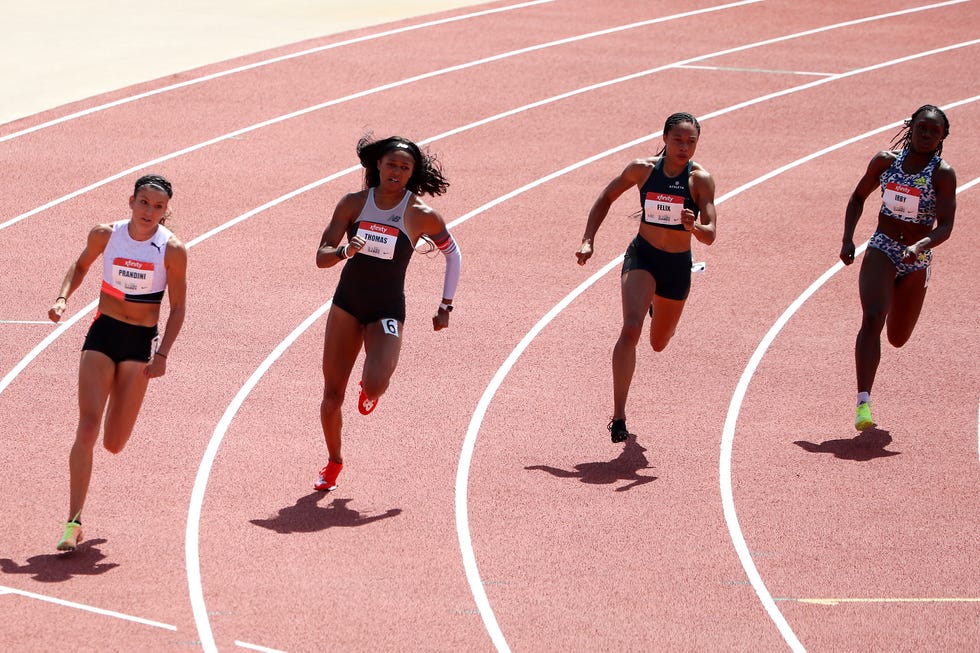
Thomas: My focus in life was always more on the academic side and giving back to communities, so I was thinking about my legacy more so off the track. I wanted to give back in a health care setting and work for a hospital. Then, I wanted to work my way up and eventually own a hospital. When track started going really well for me in 2021, I realized, I have a great opportunity here to amplify what I’m doing off of the track.
On separating who you are from how you perform
Thomas: It’s so easy to fall into a mind trap, where it feels like, This is my identity, and if things don’t go the way I want, the world is over. You can fall into that at practice. You can fall into that at any meet where you don’t do well. You can especially fall into that at the Olympics. I don’t say this lightly, but when athletes like you, someone who does so well and has so many medals, says, “There’s so much more that matters and this is about more than just track and medals,” it changes the whole perspective.
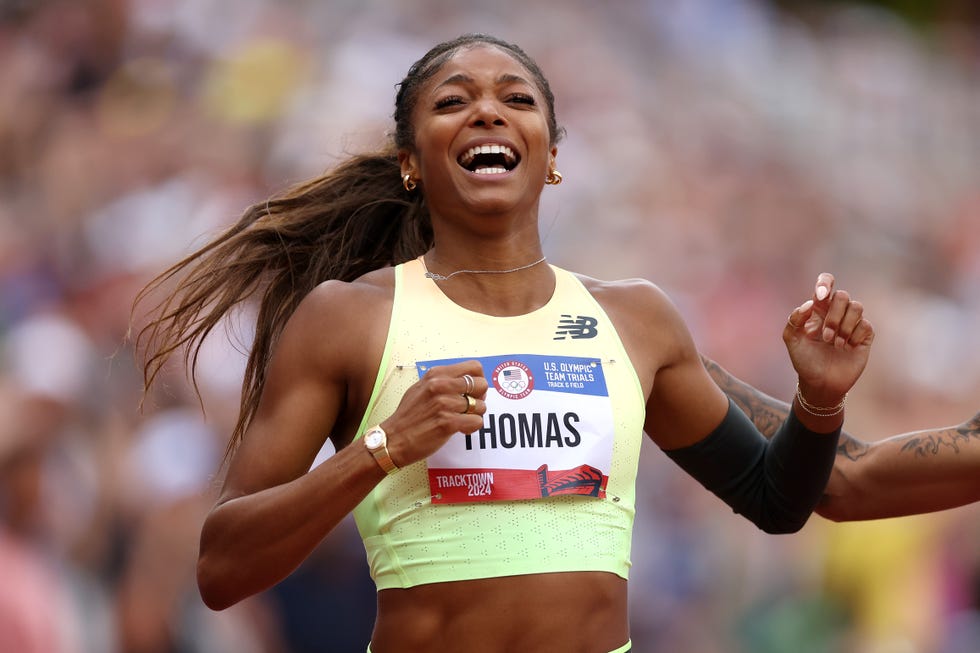
Felix: That’s super encouraging that it’s working, like we’re shifting things. I love that and I love to see you in that space. It means a whole lot, because I think a lot of times in this sport, you do things and you don’t know if it’s having any impact. You hope it is. You hope things are better.
Thomas: Had I come up in the sport with different veteran athletes ahead of me who were very intense or who gave us the impression that you only matter if you win, I would feel a lot more stressed out. I would definitely have more anxiety. I saw you on the track, I saw what you were doing on social media, and it put me in a very different headspace. I don’t take that lightly. It’s definitely changed the landscape of track and field for us, and certainly helped our mental health.
On prioritizing mental health
Felix: I used to have such tunnel vision, and not always in the most healthy way. I look back now, and I’m so grateful that we have these conversations about mental health. Things are in a better place. Obviously, we still have a ways to go, but at the peak of my career, it was always winning above everything and not ever taking time for yourself. It took real-life experiences and things to happen in order for me to realize that the meaning of being here is more than just to run fast.
Thomas: Allyson, you are so inspiring coming out and taking these stances. Simone Biles, too. This is a moment where young athletes like myself are seeing change in real time. I’m coming up in an age where we are looking at these veteran athletes who are able to speak about these things. Years ago, that wasn’t the norm. It was all about winning. It was all about the medal count and the times you ran. I feel really grateful to be running in an age where that isn’t everything and that’s not who you are. You are a person first, and then an athlete.
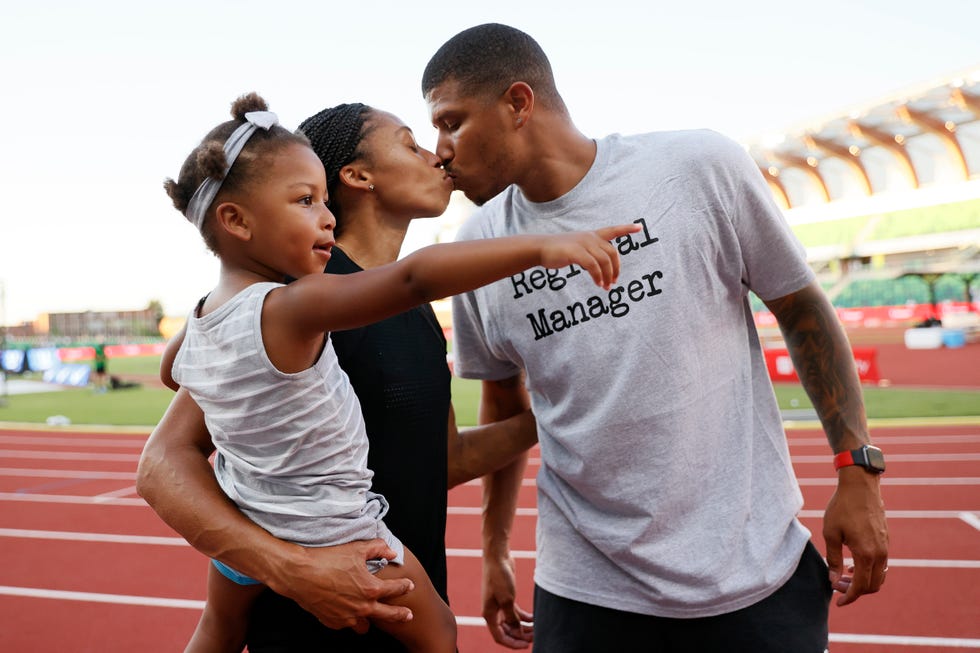
Felix: I’m thankful that will hopefully be the norm for my daughter, and that she will have all these incredible examples to look at. We are really changing the culture. It’s not an overnight fix and things are not perfect, but I do think that with the openness and the transparency athletes have today, we’re making huge strides from what it used to be. We never used to talk about these things. They used to be viewed as weak. I feel really great that the next generation will come up this way.
On finding joy off the track
Felix: I find joy in my family. My life is so busy and hectic, and there’s so much travel [involved] that I like the very simple things. We’re going to the beach this weekend, and I’m looking forward to that, just a lazy day. Anytime I can be in the backyard with my family or cooking and just not doing much of anything brings me a lot of joy.
Thomas: I’m very similar. We do have very busy schedules. It’s a lot of training, traveling, racing. So when I am able to just enjoy my own time, I spend a lot of time off of the track volunteering at a health care clinic, because it’s something that really gets my mind off of track and field, and gives me a fulfilling purpose outside of running. I don’t quite have a family yet like you, Allyson, but I do have a dog that I love to spend time with and go on walks with outside around the lake. He is a pug named Rico, and he’s just so adorable. I love hanging out with my friends. But I’m a very, very low-key kind of person. So almost everything that I do off the track is about relaxing and recovering.
This conversation has been lightly edited and condensed for clarity.


Rosy Yil is the Editor of Features & Special Projects at THEFACE.us


